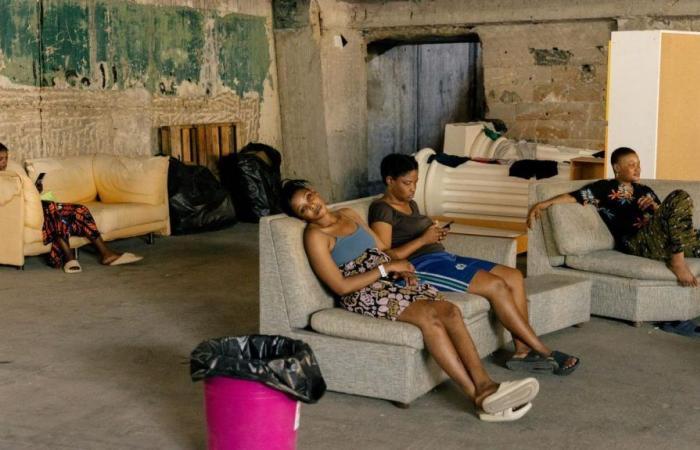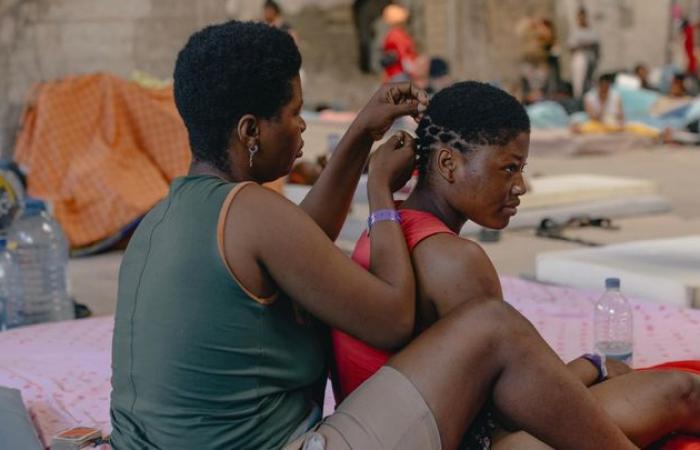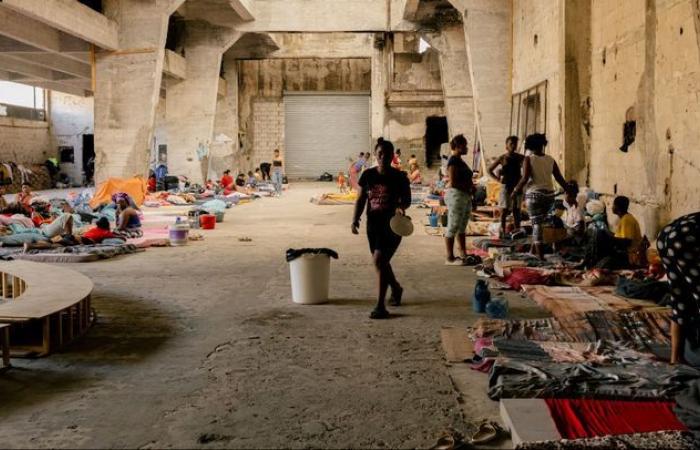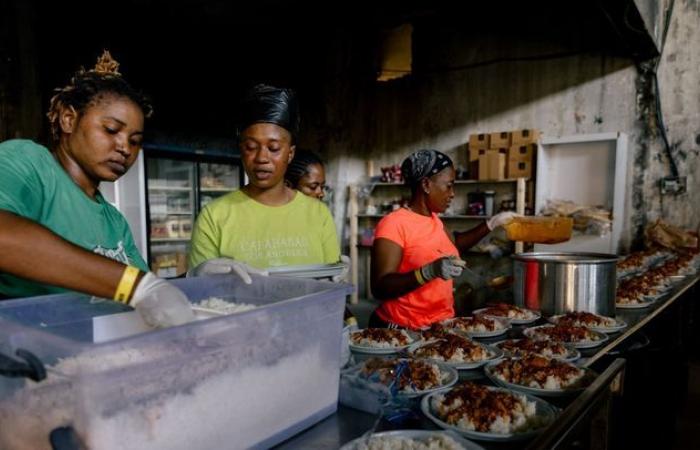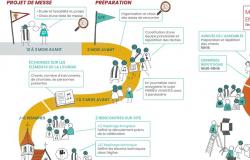According to the UN, 170,000 migrant workers live in Lebanon. The majority are women domestic workers. Many were left alone after their employers fled Israeli air raids.
Dina* was hanging laundry on the balcony when she heard the first detonation that morning, Thursday October 10. “Il must have been 7:45. The first strike didn’t make much noise, but I fled because the bombings didn’t stop afterwards.” says this Sudanese woman on the phone, who does not wish to mention her identity for security reasons. Since 2019, Dina has been a domestic worker for wealthy families in Beirut. That day, she was at one of them, in the Shiite district of Basta, a central sector of the Lebanese capital, known for its antique dealers and its antiques shops around the world.
“I found myself on the street, without any help”, she says, without specifying what happened to her employees. As the Israeli army shelled the neighborhood, Dina sought help from the Lebanese authorities, but said she was turned away from the official shelters set up to accommodate the approximately 1.2 million people displaced since the Israeli offensive launched in the country at the end of September. She finally found help from the NGO Kafa, which fights against violence and the exploitation of human beings. Here she is sheltered in a shelter in the suburbs of Beirut. She sighs and explains: “I live day by day, hour by hour. I don’t even try to think about the future.”
According to the International Organization for Migration (IOM),170,000 migrant workers reside in Lebanon. The majority are female domestic workers, originally from Sierra Leone, Ethiopia, Sri Lanka, Sudan, Bangladesh or the Philippines. With the war, they often found themselves left to their own devices. Some employers “left but left their domestic workers in the street, without taking them with them or, worse, locked them in the house to ensure that she [soit] guarded while they sought safety elsewhere.described Mathieu Luciano, the head of the IOM in Lebanon, to Agence France-Presse.
The situation of these women is all the more precarious as their status is linked to their employer within the framework of the “kafala” system which governs foreign labor. This organization, whose name means “sponsorship” in Arabic, allows employers, via recruitment agencies, to use foreign workers at prices lower than those of the country. When they arrive in Lebanon, these women have their passports confiscated by General Security at the airport, who then give them to employers, depriving them of all freedom of movement, denounces Kafa.
According to several human rights NGOs, the “godfathers” thus enjoy“total power over the lives of domestic workers regarding their legal status, employment, health care, housing and privacy”, explains to franceinfo Ghina al-Andary, head of advocacy within the Kafa organization. In 2020, the Lebanese government attempted to reform “kafala”, by creating a contract guaranteeing rights for foreign workers, but the project was rejected due to opposition from the employers’ union, develops The Orient-The Day.
“We have testimonies from women victims of physical, psychological and sexual abuse. The ‘kafala’ system is akin to slavery. It is enabled by the racism and sexism permeated in Lebanese society.”
Ghina al-Andary, head of advocacy at the NGO Kafaat franceinfo
Without rights, these women may be deprived of salary or receive a sum less than that announced when they were hired. “At the beginning, things were going rather well. But as soon as the economic crisis worsened, tensions began with families who no longer wanted to pay me,” illustrates the Sudanese Dina. “When I arrived in 2011, I thought I would work in a family, but I was forced to work in a restaurant almost day and night for 125 dollars (around 115 euros) per month”Rumaja, a Bangladeshi migrant worker, tells franceinfo. After a year of grueling work, the 29-year-old young woman was forced to flee her employer, leaving behind her passport and residence permit. She fled to southern Lebanon, to the Msayleh region, now a target of Israeli strikes.
In the chaos of war, these women cannot count on the authorities of their country of origin either. In Lebanon, many sub-Saharan African countries only have a local honorary consul who exercises his role voluntarily, recalls International mail. These administrations provide only limited assistance, if any support at all. NGOs also suspect the Lebanese government of refusing migrants access to official shelters in order to favor displaced people of Lebanese nationality. In a statement, the outgoing Lebanese Minister of Social Affairs rejected “accusations of discrimination” between the displaced.
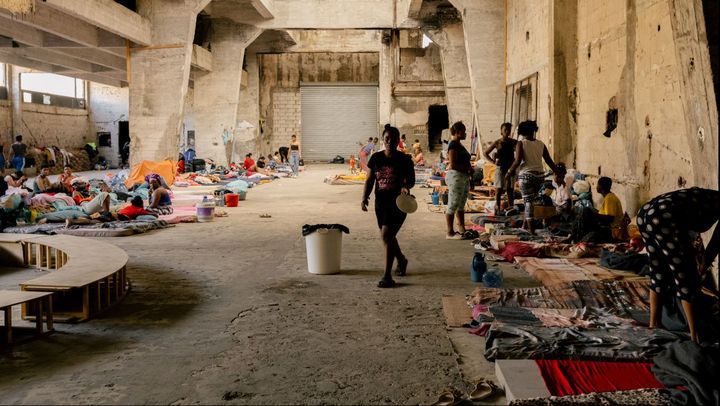

“These women are traumatized, and they cannot even call the authorities because they are in an irregular situation and are afraid of being deported,” adds Jeanne d’Arc Hobeika, project coordinator for the NGO Migrants and Services Development, to franceinfo. At the beginning of October, this NGO built a makeshift shelter in the convent of the Sisters of Charity in Ghosta, a small village perched northeast of Beirut.
“We are sheltering around a hundred people, including pregnant women and children. Many are traumatized, have seen their homes bombed, have lost everything.”
Jeanne d’Arc Hobeika, project coordinator for Migrants and services developmentat franceinfo
The NGO has set up psychological support groups so that people can talk about what they have experienced since the start of the war, but also before. “One man said he couldn’t sleep at night because he saw people being destroyed when the beepers exploded.”illustrates Joan of Arc Hobeika. On September 17 and 18, simultaneous explosions targeting the communications devices of Hezbollah members left more than 37 dead and thousands injured in the country. “Children ask to go home, they no longer want to stay in the shelter far from their toys, with several people in the same room,” takes over the humanitarian sector.
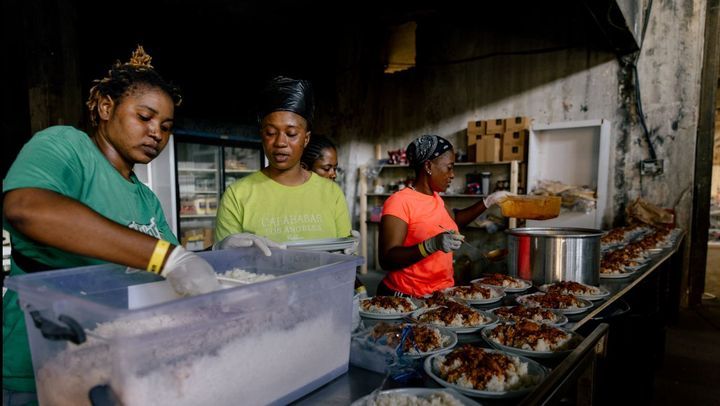

Déa Hage Chahine mobilized all her friends at the beginning of October when she saw the line of women stretching in front of the Sierra Leone consulate in Beirut. Engaged in the reconstruction of the capital since the explosions at the port of Beirut in 2020, the young Lebanese managed in a short time to rent an old hangar which she transformed into a temporary shelter. “To date, we are hosting 150 women of Sierra Leonean and Bangladeshi nationality. Only two have passports”she describes. She launched appeals for donations and collected food, blankets and medical equipment.
“Many people wanted to help us: we received money, food, mattresses. We have enough to pay for water and electricity.”
Déa Hage Chahine, volunteer with migrant workersat franceinfo
“A friend also lends us his professional kitchen for meals”she explains on the phone. This provision made it possible to organize activities for the refugees and give them a semblance of routine. “We established 10 groups of 15 people. Every day, a group is responsible for meals, this gives responsibilities”develops Déa Hage Chahine. The volunteer is also pleased to have succeeded in initiating a repatriation process for Sierra Leonean women. “If all goes well, the consul will come in a few days to issue them passes,” she explains.
However, she expects that new women will continue to arrive at the shelter in the coming days, and hopes that the shelter will never be targeted. From the roof of the hangar, “we can see the smoke from the bombings. We are really two minutes from the strikes,” she describes. And adds: “Today, it’s the drone of drones above our heads that is incessant.”
* The first name has been changed at the request of the person concerned.

